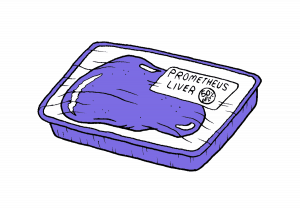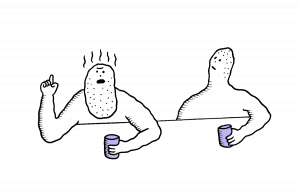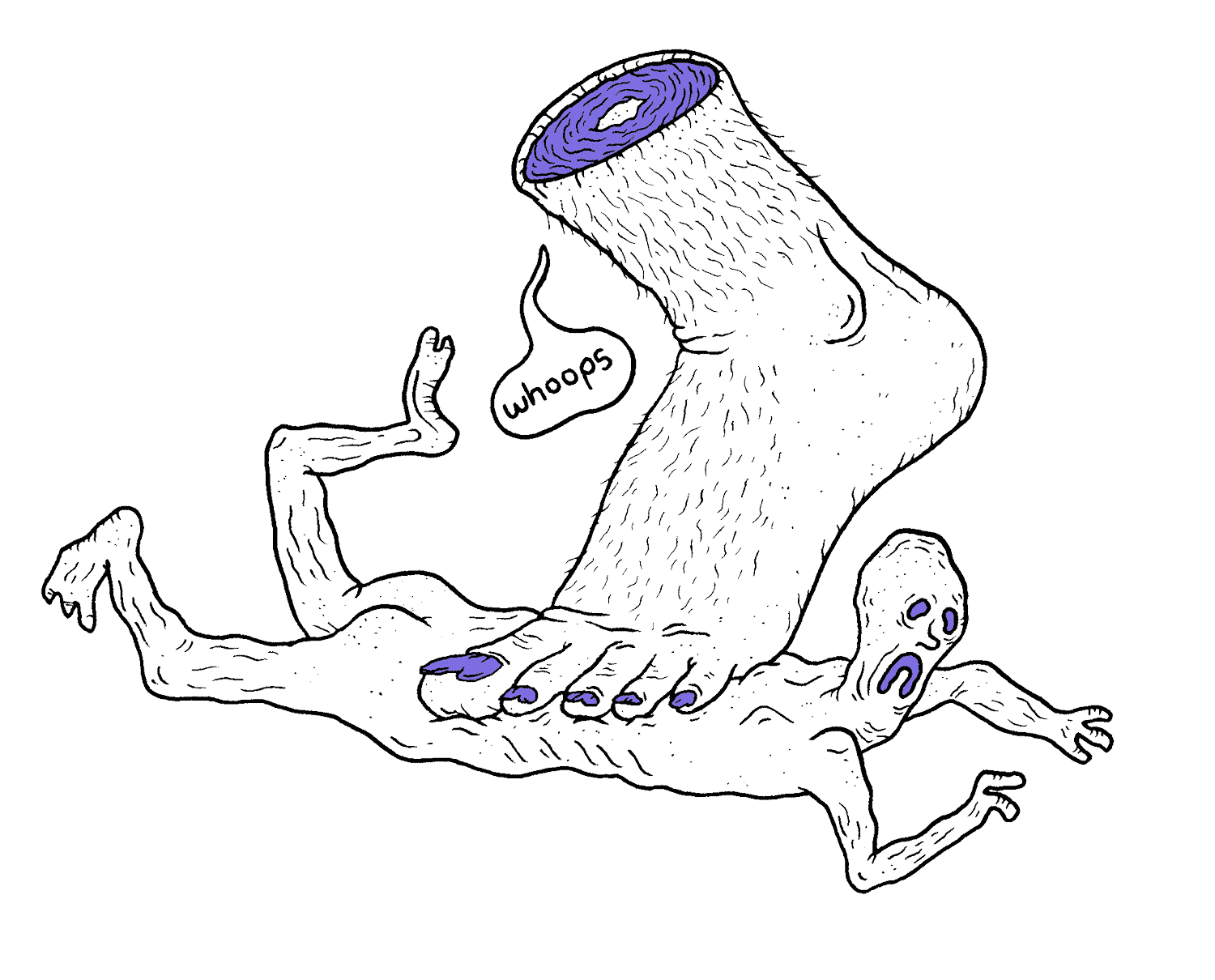Ah, Prometheus. A Robin Hood to humans and a pariah to the gods. Upsetting the status quo and paying for it dearly. There isn’t even any real moral in his story, except “don’t mess with the boss.” Or maybe “No good deed goes unpunished,” though that is from the demigod perspective.
We ‘demis’ also like Prometheus, though we have to shift our opinion depending on which side of the family we’re dining with. Without him though, we probably wouldn’t be around. The mortal side of our family would likely still be half-formed mounds of flesh with life cycles like oysters. They’d be dying of bacterial infections like it was going out of style, like the plague was business as usual, open 24 hours even on holidays. They’d be living in some swamp of the earth, unable to adapt to other climates, unable to escape the muck or even notice it. They’d be the things our god-relatives would have stepped on and exclaimed “Whoops!”
But then that good fellow came along and gave those helpless clods (those humans) the gift of fire, and damn, did that set things off. Parties became a thing; emotionally-charged decisions became a thing; moving day became a thing.

And our boy Prometheus paid sweetly for it. You’ve heard the story: guy tied to a stone, eagle pecks his liver out everyday, liver grows back every night. Some real Saw stuff. What you might not have heard was this: that eagle was actually a demi being punished too. He didn’t want to eat the liver; it tasted bad and felt awful. And every day Prometheus would scream and cry and the eagle would scream and cry and the tourists, who often thought they were prepared for the scene but of course, how could they be, they screamed and cried, too.
Eventually Hercules came along, freed Prometheus and killed the bird, and was hailed as a hero (tough shit eagle-man, invest in a PR agent next time). And then the gods had a real predicament on their hands. Do they continue the punishment or reconsider their position?
You see, the gods started caring less and less about the transgressions of this human-lover Prometheus, mostly because they realized humans were a great source of servitude. And how much use would mortals have been as those flesh oysters? Yeah, they would worship you, boost your ego a bit, but who would work throughout the night lugging stones to capture your likeness on a grand scale? Not those oysters, that’s for sure.
Also, letting Prometheus go free was an easy way to placate the humans, most of whom really had a thing for the guy. It was nothing to the gods and everything to the mortals, and sometimes you just have to give the people a win. So, next thing you know, Prometheus is released.

He wasn’t fully free, it was definitely a probationary period. For one thing, he was stripped of most of his god powers except eternal life. The gods would never strip another god of immortality because none of them wanted that precedent to be set. It was, after all, their way to secure the status quo. It’s how they won every monopoly game and lawsuit and real estate dispute, simply by outlasting their opponents. It was their key to the damn city.
Of course, Prometheus was inevitably going to have to live among the humans now because he would never make it in the godland. Yeah the gods set him free, but do you think they were about to eat with him, or talk to him, or let him visit any of the oracles? Not a chance. So, dude was earthbound. But, the main clause in his probation agreement was this: no more giving away the secrets of the gods. No talk of immortality, no talk of soothsaying, Prometheus just had to shut up and be good.
So, there Prometheus was, stripped of almost all power, banished to the human realm, and under a strict gag order. And frankly, the guy was stoked. He changed his name to Peter, moved to Boise, Idaho, and got a job developing film at one of the last places in town that developed film.
But maybe all this acclimatization to Earth was causing our boy to lose his edge. Maybe he was beginning to slip up and make some very human mistakes. Or maybe, due to the predilection for pontification that no god could seem to shake, our poor hero was doomed from the beginning. All I know is, one drunken night at a dive bar in downtown Boise coincidentally called The Apollo, the guy erred hard.

“It’s the thin air. You get less oxidized, and oxidation is the major aging agent. You wanna live long you gotta live high, on the highest mountain you can find. Ever notice how the powerful always live high up? The mansions are always in in the sky? It’s the thin air. We gotta head upwards,” Peter slurred to his friend. “We’re living like worms in the dirt down here.”
And later, when Peter was drunkenly stumbling home, wondering if perhaps he had said the wrong thing, he noticed a bird circling in the sky. And it seemed to be moving ever closer.
X
A.L. lives in a small apartment in Vancouver, B.C.. She spends a lot of time thinking about T.V. commercials from her childhood. She wonders whether water gun technology has kept progressing at the same rapid rate.


